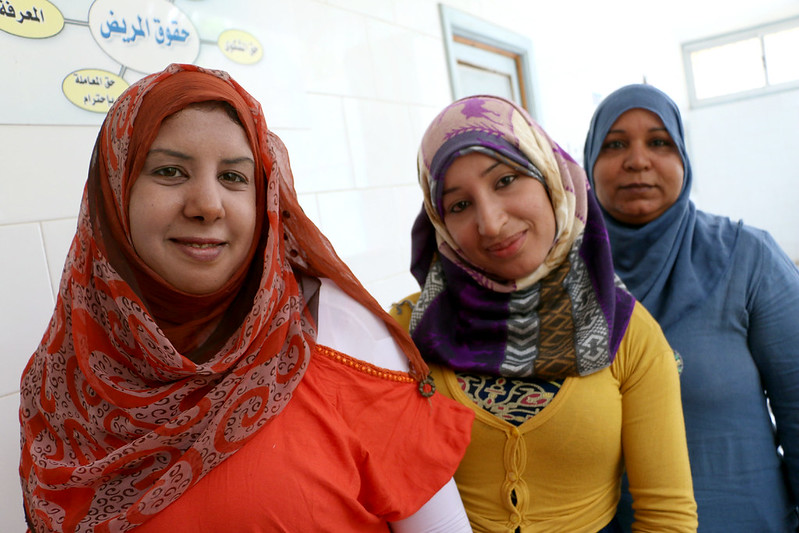The $10 Billion Plan to Combat Rural Poverty in Egypt
 In response to the persistent challenge of rural poverty in Egypt, the government has unveiled an ambitious initiative known as the “$10 Billion Plan.” This comprehensive strategy aims to tackle the multifaceted issues underlying rural impoverishment by targeting key sectors and implementing various initiatives. With a substantial budget allocation of $10 billion, the plan focuses on revitalizing the agricultural sector, improving infrastructure, implementing social welfare programs and fostering entrepreneurship in rural communities. By addressing systemic barriers and investing in sustainable development, the plan seeks to uplift rural populations, enhance livelihoods and promote inclusive economic growth across Egypt’s rural landscape.
In response to the persistent challenge of rural poverty in Egypt, the government has unveiled an ambitious initiative known as the “$10 Billion Plan.” This comprehensive strategy aims to tackle the multifaceted issues underlying rural impoverishment by targeting key sectors and implementing various initiatives. With a substantial budget allocation of $10 billion, the plan focuses on revitalizing the agricultural sector, improving infrastructure, implementing social welfare programs and fostering entrepreneurship in rural communities. By addressing systemic barriers and investing in sustainable development, the plan seeks to uplift rural populations, enhance livelihoods and promote inclusive economic growth across Egypt’s rural landscape.
Since its inception, the Decent Life Initiative has garnered high expectations. In 2021, the Egyptian prime minister hailed it as Egypt’s mega project of the 21st Century, drawing parallels to iconic national endeavors like the Suez Canal and the Aswan High Dam.
Over the years, the initiative has begun to fulfill the promises made by Egyptian leadership. Branded as “Haya Kareema,” the Decent Life Initiative represents a comprehensive strategy to eradicate rural poverty in Egypt, encompassing many projects to foster sustainable growth in rural areas. Praised by the United Nations (U.N.) for its meticulous planning, Decent Life targets various facets of rural life, benefiting from broad support beyond governmental realms, with private sector entities and humanitarian organizations actively participating. With a combined funding of 500 billion Egyptian Pounds ($10.5 billion), Decent Life demonstrates a concerted effort to uplift rural communities and foster enduring socio-economic progress.
Rural Poverty in Egypt
A stark contrast exists between the quality of life in rural and urban Egypt. In 2011, 30% of the rural population struggled to afford necessities, compared to 10.6% in urban areas. Similarly, poverty rates mirrored this discrepancy, with 9.6% of rural Egyptians unable to access adequate food, while only 2.6% faced such challenges in urban locales. The Decent Life initiative represents a concerted effort to ease the impoverished conditions experienced by many rural Egyptians.
The Logistics of Decent Life
Decent Life commenced its official launch in 2019, marking the beginning of a transformative initiative. Initially, the government undertook a comprehensive survey of every rural village, employing an algorithm to identify the disadvantaged communities. These villages were ranked based on various criteria, including access to water and sanitation, education rates, health care accessibility, transportation infrastructure and poverty levels. The inaugural phase of Decent Life, from 2022 to 2024, concentrated on addressing the needs of identified communities. During this phase, a remarkable 23,000 projects were implemented across 1,477 villages, resulting in approximately 18 million Egyptians benefiting from the initiative.
The First Phase
Decent Life integrates vital life-saving interventions with projects aimed at fostering growth. Here are some notable achievements of the initiative thus far: access to water and sanitation: The government constructed 169 water stations, resulting in a significant increase of 24,000 households gaining access to clean water. Additionally, nine sewage treatment plants and 739 sanitation projects under Decent Life were inaugurated. These efforts led to a notable rise in household access to the sewage system, benefiting 287,000 individuals.
The Impact of the Decent Life Initiative
Decent Life, an initiative in Egypt, has made substantial contributions across various sectors. In education, it has constructed more than 14,000 classrooms across 1,242 schools, reducing classroom density in 35% of schools and eliminating the need for shifts due to overcrowding. Health care access has also seen significant improvements with the opening of 382 health units, a new hospital in the Aswan Governance and more than 300 new ambulance services.
Further, transportation infrastructure has been upgraded by paving 45 roads, including 15 main thoroughfares, refurbishing 60 railway stations and enhancing public transport services. Addressing rural poverty is another focus of Decent Life, achieved through initiatives like enhancing financial access. This includes establishing 12 new bank branches, renovating 112 existing branches and installing 563 ATMs, leading to more than 200,000 new bank accounts opening. Efforts to improve internet connectivity have connected more than 180 villages to a fiber optic network and installed more than 1,000 network towers, expanding internet access and economic opportunities for rural communities.
The Future of Decent Life
The completion of the first phase is slated for 2024, with the second phase poised to commence shortly after that. Encompassing more than 1,600 villages and impacting the lives of 20 million Egyptians, the Decent Life Initiative represents a monumental endeavor to eradicate rural poverty in Egypt. The ongoing efforts of the initiative have already yielded substantial benefits for millions of Egyptians, underscoring the imperative of its continuation. With a steadfast focus on sustainable growth, there is optimism that the initiative will provide a lasting solution to rural poverty in Egypt rather than a temporary fix.
– Richard Sartor
Photo: Flickr
